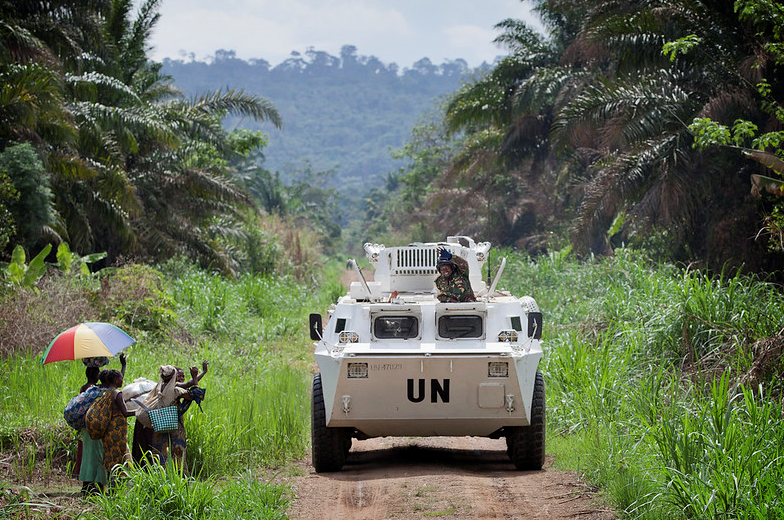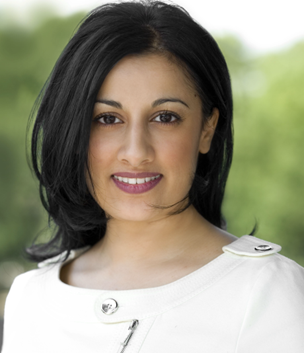Author: Naema Tahir
Dossier: 75 jaar Mensenrechten-verklaring en VN-Vredeshandhaving: Een verkenning van de toekomst
Editor: VN Forum/Vereniging voor de Verenigde Naties (NVVN)
I learned an important lesson while working for the United Nations a quarter of a century ago. I was stationed in Nigeria, at the Lagos Branch Office of the UN High Commissioner for Refugees, and, in my role of protection officer, I dealt daily with refugees and asylum seekers from war torn countries such as Liberia and Sierra Leone. Part of my responsibility was to undertake a weekly visit to the Oru refugee camp some 2 hour’s drive from Lagos. There, together with my colleagues, I would assist refugees with legal or practical advice which would help them build new lives in a country unknown to them.
One day, after seeking permission, I set off into the camp domains to take pictures of the refugees. This was very much appreciated, and I was taken to the school at the campsite and the children there laughed and smiled into the lens. Outside of the school some of them formed a small photogenetic group which I then photographed. Then, suddenly, one of the mothers of the children approached me. ‘When you take a photo,’ she said ‘you take part of the soul of that child. What will you do with that soul?’
I had never been asked that question before. I had never thought about the soul in that way. I replied to her that I will take good care of this soul. My answer did not fully satisfy the mother, so she repeated her question and in my turn all I could do was repeat my answer.
It was clear to me that for the mother the soul had a cultural significance which was unknown to me. Had I known this, then I am very sure I would not have taken pictures of the camp dwellers. Carrying someone’s soul with you, albeit a small part, is a huge responsibility, I felt. This should not fall on me, just like that.
Years later, I started sharing this story with whoever was interested. I did this because I wished to keep the memory alive of the refugee child I had photographed. This was my way of taking care of the soul of the child. I also hoped that by talking about my experience all the world’s refugee children would be remembered as deserving of protection and peace.
Today, I share this story because there is a deeper meaning to it which I wish to connect to the UDHR and to peacekeeping in general. Both the UDHR and peacekeeping are celebrating 75 years anniversaries, and both are looking forward toward the next 75 years. How can the UDHR and peacekeeping be strengthened? How can they be more effective? In other words, how can they help better?
While the UDHR and peacekeeping have done great work, both have also been subject to much scrutiny. One of the criticisms is about the Western ‘weight’ they both carry. The UDHR is still seen by many to be a Western instrument for Western nations to pursue human rights from a Western perspective, fulfilling a Western agenda. Peace keeping operations too have been criticized in a similar fashion as being forces that are put in place to bring Western liberalism to countries rapidly, without good understanding of the local customs, traditions and institutions and with little appreciation for a different way of life the people concerned may desire.
Good thought and scholarship are being put into improving peacekeeping endeavors. One reads about involving local communities more in the process, there should be more respect for local traditions, customs and the local religion and in general there should be more respect and understanding that change takes time.
Yet, there is something I always find missing in this narrative of improvement.
Allow me to take the reader back to the mother in the Oru refugee camp: what would I do differently today to strengthen my role as peacekeeper and protector and champion of human rights? Of course, I would learn more about the local customs and traditions and I would act more cautiously.
But there is more.
The mother taught me something we hardly talk about. She taught me a new language. A language we have all heard of but we somehow refuse to really learn and that is the language of duties. The mother made me aware of something we do not always highlight when we speak of human rights. Her question referred to a traditional way of viewing life and ethics and one’s role towards one another.
Let me repeat what she asked: ‘What will you do with the soul of this child?’
The mother effectively asked me: What is your duty towards this child? She did not speak about the child’s rights. Nor did she speak about her rights. She did not speak about my rights. She spoke about duties. My duties. And her duties of speaking on behalf of her child.
Of course, we all know that human rights and duties go hand in hand and that rights always come with responsibilities. The UDHR is not silent on this as it mentions duties in Article 29. The notion of duties are never unknown in our actions either. To just mention one thing: the phrasing of R2P – Responsibility to Protect – expresses duty.
Yet, all too often, we do forget, or we simply do not know that many people around the world think in terms of duties. What is less recognized is that many believe in duties before rights.
Just as the rights language is a language of being good, the language of duty is an equally valid language of being good.
We have a responsibility to not just respect that language, as a local thing of the other, but we must also learn to speak it, as a language we all share, as a universal language.
I am not the first, nor will I be the last to say this. More than 75 years ago, before the UDHR was adopted Mohandas Gandhi highlighted duties too. Let me cite his, now famous, words in full:
‘I learned from my illiterate but wise mother that all rights to be deserved and preserved came from duty well done. Thus the very right to live accrues to us only when we do the duty of citizenship of the world. From this one fundamental statement, perhaps it is easy enough to define the duties of Man and Woman and correlate every right to some corresponding duty to be first performed. Every other right can be shown to be a usurpation hardly worth fighting for.’[1]
There is much academic and political discussion, criticism too, about these words and it is not fitting or possible to delve into that discussion on this page. But I do truly believe that we have a responsibility ahead of us for the next 75 years and beyond of the UDHR and peacekeeping and that is to learn a new language.
We have all travelled and met people all around the world, in private and professional capacities. We have all met mothers and fathers, women and men, and children who tell us a story. We approach that story from our own frames of reference and in our own language we interpret that story and decide its meaning and its significance for the other. I am sure that if we spoke the language of duties, we would learn new things, new perspectives, new ways of life and we would look with fresh eyes at our responsibility towards other people and their souls. I do believe that this is the future.

Naema Tahir (June 2024)
Naema Tahir is a former United Nations official in Lagos, Nigeria, a former legal officer for the Council of Europe, in Strasbourg, France and a former legal officer for the Dutch government. Tahir is currently assistant professor of law at Leiden University College in The Hague (LUC) and the University College Roosevelt (UCR), in Middelburg and she is researcher at Utrecht University. From 2015-2023 she served the Netherlands Advisory Commission of International Affairs.
Tahir has a Ph.D in law and published Breaking Eurocentric Frames on Arranged Marriage (Eleven, 2022). She earned her Masters of Law degree in 1996 from Leiden University and holds a post-doc in Administrative Law from the Grotius Academy, Nijmegen.
Tahir is specialized in human rights, non-Eurocentric perspectives on human rights, women’s rights, marriage and human rights, the protection of migrant workers and refugee law.
[1] M. Gandhi, Letter Addressed to the Director-General of UNESCO.
